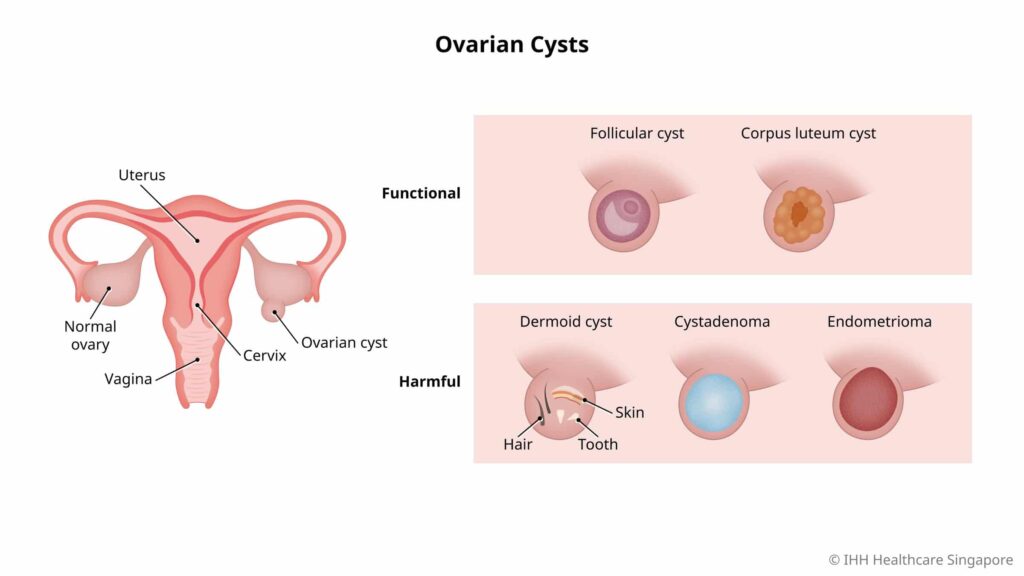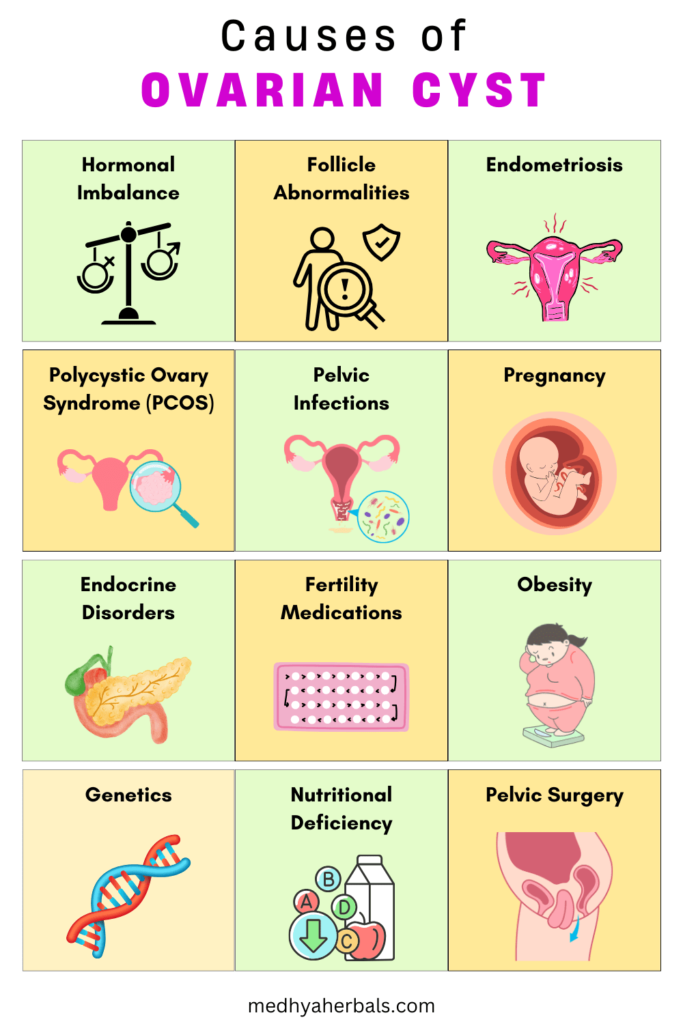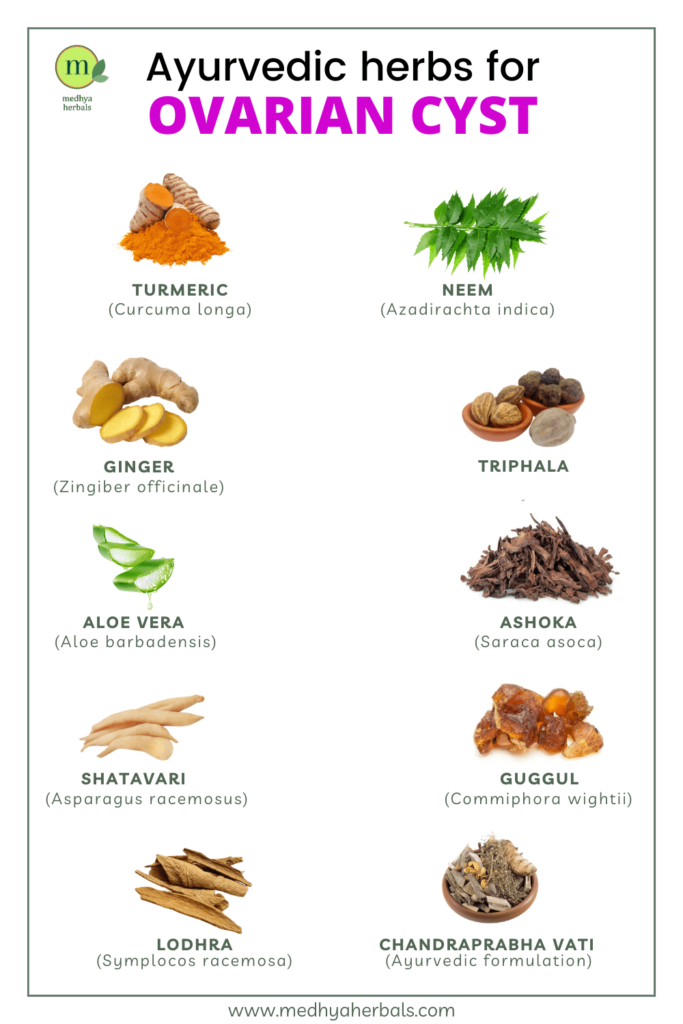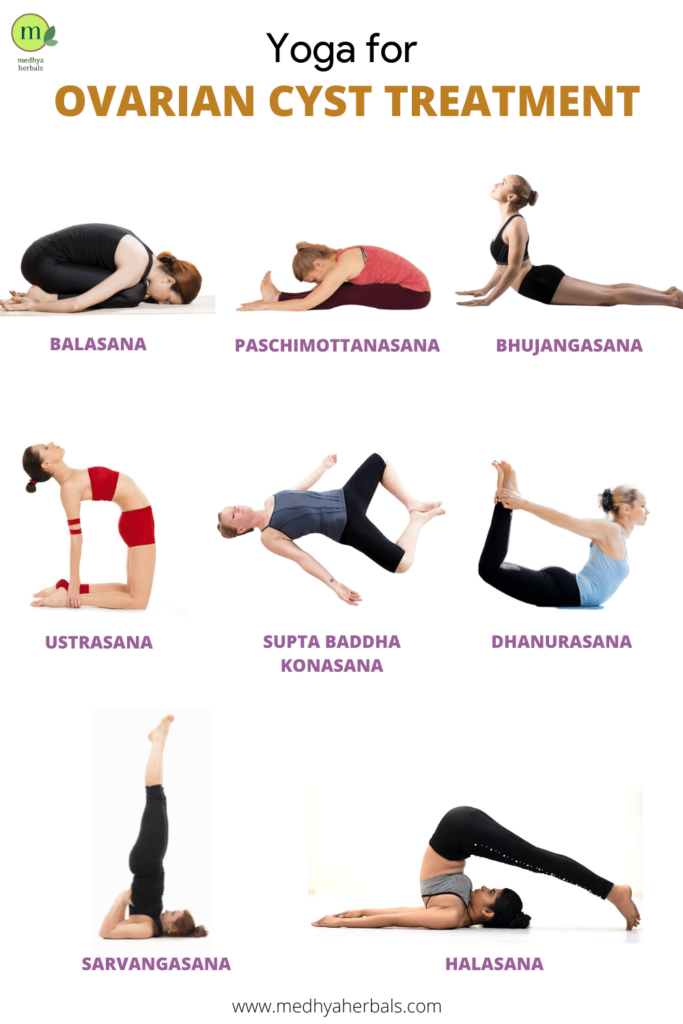In the realm of women’s health, the issue of ovarian cysts often looms silently, causing discomfort and concern. The quest for a natural, surgery-free solution to shrink ovarian cysts naturally has never been more relevant. In our pursuit of holistic wellness, we explore the potency of herbal remedies and natural treatments, offering a beacon of hope to those seeking a gentler path to well-being.
Ovarian cysts, a common challenge for many women, have the potential to disrupt daily life and create a sense of unease. But what if there was a way to address this issue without invasive procedures? In this comprehensive guide, we delve into the world of natural treatment options, presenting you with the power of herbal remedies and holistic solutions. As we navigate through this journey, we promise to be your trusted companion, providing you with valuable insights on shrinking ovarian cysts naturally and restoring the harmony of well-being. Join us as we embark on a quest for an alternative path to health that embraces the wisdom of nature and the body’s innate ability to heal.
Types of Ovarian Cysts
Ovarian cysts are fluid-filled sacs that develop within or on the surface of the ovaries, the reproductive organs in women. These cysts can vary in size, shape, and type and are a common gynecological issue.

1. Functional Ovarian Cysts
Functional cysts are the most prevalent type and often result from the menstrual cycle’s natural processes. They are further categorized into:
- Follicular Cysts: These occur when a mature follicle in the ovary fails to release an egg during ovulation and instead becomes a cyst.
- Corpus Luteum Cysts: These form when the corpus luteum, a temporary structure that develops after ovulation, fills with fluid.
2. Pathological Ovarian Cysts
Pathological cysts are less common and can be more concerning. They include:
- Dermoid Cysts: These unusual cysts contain various types of tissues, such as hair, skin, and even teeth.
- Cystadenomas: Cystadenomas are cysts that develop on the surface of the ovary and can grow quite large.
- Endometriomas: Also known as chocolate cysts, these are associated with endometriosis, a condition where tissue similar to the lining of the uterus grows outside the uterus. Endometriomas are filled with old blood.
3. Polycystic Ovary Syndrome (PCOS)
PCOS is a unique condition where multiple small cysts may develop on the ovaries. PCOS is characterized by hormonal imbalances and can lead to various symptoms, including irregular periods, weight gain, and fertility issues.

Symptoms of Ovarian Cysts
The presence of ovarian cysts can lead to various symptoms, although many cysts are asymptomatic and discovered incidentally during routine check-ups. Common symptoms may include:
Pelvic Pain
The most common and noticeable symptom of ovarian cysts is pelvic pain. This pain can vary in intensity and may manifest as a dull, aching sensation in the lower abdomen or pelvic region. The pain may come and go or persist over time. Pelvic pain occurs when the cyst exerts pressure on the ovaries or stretches the tissue of the ovary.
Bloating
The feeling of fullness or pressure in the lower abdomen, commonly known as bloating, is a frequent symptom experienced by many women with ovarian cysts. It can be accompanied by abdominal distension or a sensation of increased girth. Bloating is often a result of the cyst’s size and location, which can put pressure on adjacent organs and affect normal digestive processes.
Changes in Menstrual Cycle
Alterations in the menstrual cycle are a typical symptom caused by ovarian cysts. These changes may include irregular periods or variations in menstrual flow. Some women may notice periods becoming heavier or lighter when cysts are present. Cysts, particularly functional cysts, can disrupt hormonal balance, affecting the regularity and flow of menstruation.
Pain During Intercourse
Discomfort or pain during sexual intercourse is a symptom that some women with ovarian cysts may encounter. This discomfort can make sexual activity painful and, in some cases, may lead to reduced sexual desire. The presence of cysts in or around the ovaries can make certain movements or positions uncomfortable or painful.
Frequent Urination
Women with ovarian cysts may experience an increased urge to urinate frequently. This symptom can be disruptive and lead to frequent trips to the bathroom. Cysts, especially when they grow larger, can press against the bladder, resulting in a feeling of needing to urinate more often.
Nausea and Vomiting
In some cases, particularly when cysts become large or cause intense pain, they may lead to feelings of nausea and, occasionally, vomiting. Severe pain and the impact of cysts on surrounding organs can trigger nausea and vomiting in some individuals.
Breast Tenderness
Breast tenderness or changes in breast sensations can occur as a result of ovarian cysts affecting hormone levels.Hormonal imbalances associated with ovarian cysts can influence breast tissue, leading to tenderness or discomfort.
Tests and Diagnosis for Cysts on the Ovaries
Ovarian cysts can be felt during a pelvic exam, with a special focus on inflammation and tenderness of the lower abdominal region. Specific confirmatory tests include:
- Pelvic Sonography – Location and size of the cysts can be confirmed by an ultrasound of the pelvic region
- Hormone level tests to see whether there are hormone-related problems.
- Blood tests for postmenopausal women to detect and measure the amount of cancer-antigen 125 (CA-125) in blood. High values of CA-125 post-menopause indicate ovarian cancer. In premenopausal women, many other illnesses or diseases besides cancer can cause higher levels of CA-125.

Causes of Ovarian Cysts
Ovarian cysts, fluid-filled sacs that form on or within the ovaries, are a common gynecological condition. While many cysts are harmless and resolve on their own, understanding the underlying causes of ovarian cysts can provide valuable insights into their development and, in some cases, help in prevention. Here, we explore the various factors that contribute to the formation of ovarian cysts:
Hormonal Imbalances
Fluctuations in hormone levels, especially estrogen and progesterone, play a pivotal role in the formation of ovarian cysts.
Normally, the ovaries release eggs during the menstrual cycle in a process known as ovulation. This delicate process is regulated by hormones. However, when hormonal imbalances occur, they can disrupt the natural rhythm of ovulation, ultimately leading to the development of cysts. Hormonal imbalances are often closely linked with conditions like polycystic ovary syndrome (PCOS), which can result in the accumulation of multiple small cysts on the ovaries.
Endometriosis
Endometriosis is a medical condition characterized by the presence of tissue resembling the lining of the uterus growing outside the uterus itself. In cases of endometriosis, this abnormal tissue can attach itself to the ovaries, giving rise to cysts known as endometriomas. These chocolate cysts are filled with old blood and can provoke pain and discomfort. The size and impact of endometriosis-related cysts can vary, from being small and inconspicuous to larger and more troublesome.
Pregnancy
Pregnancy, specifically during its early stages, can occasionally lead to the formation of ovarian cysts. During pregnancy, cysts can emerge due to changes in the ovaries, primarily occurring in the first trimester. Fortunately, these cysts are generally benign and tend to resolve on their own as the pregnancy progresses.
Pelvic Infections
Infections within the pelvic area, such as pelvic inflammatory disease (PID), have the potential to contribute to the development of ovarian cysts.
In cases of infection and inflammation within the pelvic region, the ovaries can be affected, giving rise to the formation of cysts. These cysts may be filled with pus or other infectious material, causing discomfort and complications.
Polycystic Ovary Syndrome (PCOS)
Polycystic ovary syndrome (PCOS) is a hormonal disorder that can lead to the accumulation of multiple small cysts on the ovaries.
Within the context of PCOS, hormonal imbalances and insulin resistance can disrupt the normal functioning of the ovaries. This disruption results in the accumulation of numerous small cysts on the ovaries, which can lead to a range of symptoms, including irregular menstrual periods, weight gain, and fertility issues.
What Makes Ovarian Cyst Grow Fast?
Understanding the factors that accelerate the growth of ovarian cysts is essential for informed decision-making and proactive management. When you know what makes ovarian cysts grow faster, you can avoid all of these factors and adopt ones that help to shrink the ovarian cysts. Together both the approaches will help you to manage ovarian cyst symptoms and reduce them naturally.
- Hormonal Imbalances: Hormonal fluctuations, particularly in estrogen and progesterone levels, can trigger the formation and growth of cysts. Balancing these hormones is essential.
- Inflammation: Chronic inflammation can encourage cyst growth. Reducing inflammation through dietary choices and lifestyle changes can help prevent cysts from getting larger.
- Insulin Resistance: High insulin levels may contribute to the development of cysts, especially in cases of polycystic ovary syndrome (PCOS). Managing insulin resistance can support cyst reduction.
- Stress: Chronic stress can impact hormone regulation and inflammation, potentially exacerbating cyst growth. Stress management techniques are essential in a natural approach.
- Diet: Diet plays a significant role in ovarian health. Certain foods can promote inflammation, while others can have anti-inflammatory and hormone-balancing properties.
How to Reduce Ovarian Cysts Naturally?
Dealing with ovarian cysts can be a painful and distressing experience for many women. While medical intervention is sometimes necessary, there are several natural remedies that can complement your treatment plan. These remedies aim to balance hormones, reduce inflammation, and alleviate the pain associated with ovarian cysts.
1. Take an Anti-Inflammatory Diet
Maintaining a well-balanced diet is essential for managing ovarian cysts. The foods you consume play a critical role in hormone regulation and inflammation reduction. A diet rich in antioxidants, fiber, and essential fatty acids can help to balance hormones by minimizing insulin spikes and reducing inflammation. Processed foods, sugar, and dairy products can exacerbate hormonal imbalances, so reducing their consumption is advisable. Increasing your intake of fruits, vegetables, whole grains, and lean proteins can provide essential nutrients and help alleviate symptoms.
2. Herbal Supplements
Certain herbs are known for their ability to regulate hormones and reduce inflammation, which can be particularly beneficial for women with ovarian cysts. Chasteberry, for example, is known for its hormonal balancing properties and can help regulate menstrual cycles. Black cohosh and turmeric are also helpful for reducing inflammation and pain. These herbs can be consumed in various forms, including supplements, herbal teas, or tinctures.

3. Castor Oil Packs
Applying castor oil packs externally to the lower abdomen can be a soothing and effective natural remedy for ovarian cysts. Castor oil is known for its ability to increase blood circulation and lymphatic drainage in the pelvic area. By doing so, it can help reduce inflammation, alleviate pain, and potentially shrink the size of ovarian cysts. To use a castor oil pack, soak a piece of flannel cloth in castor oil, place it on your abdomen, and cover it with a plastic wrap and a heating pad. Leave it on for about 30-60 minutes to allow the oil to penetrate the skin and promote healing.
4. Exercise and Stress Reduction
Regular physical activity is essential for hormone balance and reducing inflammation. Engaging in exercises like brisk walking, yoga, or swimming can help regulate hormones and alleviate the symptoms of ovarian cysts. Additionally, stress reduction techniques such as meditation, deep breathing exercises, or mindfulness practices can be invaluable. High stress levels can lead to hormonal imbalances and inflammation, making stress management an essential component of managing ovarian cysts.
5. Magnesium Supplementation
Magnesium is a crucial mineral that plays a significant role in hormone regulation and inflammation reduction. Many women with ovarian cysts have found relief by incorporating magnesium supplements into their daily routine. Magnesium helps in relaxing muscles and reducing cramps associated with ovarian cysts. It can also assist in insulin sensitivity, which is vital for women with PCOS (Polycystic Ovary Syndrome). You can find magnesium supplements in various forms, such as magnesium citrate or magnesium glycinate. Consult with a healthcare provider to determine the right dosage for your specific needs.
6. Apple Cider Vinegar
Apple cider vinegar is touted for its potential to regulate insulin levels and reduce insulin resistance, both of which are often associated with PCOS. Insulin resistance can lead to hormonal imbalances, causing the development of ovarian cysts. By incorporating apple cider vinegar into your diet, you can help maintain stable blood sugar levels and improve insulin sensitivity. To use it, dilute a tablespoon of apple cider vinegar in a glass of water and consume it before meals. While some women find relief with this remedy, it’s essential to consult with your healthcare provider before making significant dietary changes.
7. Probiotics for Gut Health
A healthy gut is vital for hormone regulation and inflammation reduction. Probiotic-rich foods like yogurt, kefir, kimchi, or sauerkraut, or probiotic supplements, can promote a balanced gut microbiome. A well-balanced gut microbiome supports optimal digestion and absorption of nutrients, which is essential for hormonal balance. Additionally, it can help reduce inflammation in the body, which is beneficial for women with ovarian cysts. Incorporating probiotics into your diet can be a long-term strategy to promote overall health and well-being.
8. Dandelion Root Tea
Dandelion root tea is known for its detoxifying properties and its ability to support liver function. The liver plays a crucial role in hormone metabolism, making dandelion root tea a valuable addition to your ovarian cyst management plan. This tea can assist in clearing excess hormones from the body and supporting overall hormonal balance. Dandelion root tea is widely available in health food stores and can be consumed as a beverage. Ensure that you follow the recommended guidelines for consumption, and if you have any underlying health conditions, consult with a healthcare provider before using herbal remedies.
9. Heat Therapy
Heat therapy is a simple yet effective way to alleviate the pain associated with ovarian cysts. Applying a heating pad or warm compress to your lower abdomen can provide immediate relief by relaxing the pelvic muscles and reducing discomfort. The heat increases blood flow to the area, which can help reduce inflammation and alleviate pain. Whether you use a heating pad or a warm water bottle, this natural remedy is a go-to for many women experiencing ovarian cyst pain. Be sure to use it as needed and avoid extreme heat to prevent burns or skin irritation.

10. Regular Monitoring
While natural remedies can be valuable in managing ovarian cysts, it’s crucial to remember that they should complement, not replace, medical consultation. Regular monitoring by a healthcare provider is essential to ensure that the cysts are not growing larger or becoming more complex. Your healthcare provider can guide you on the best approach, which may include medical treatment or surgery if necessary. It’s crucial to have a comprehensive healthcare plan in place to address your unique situation and provide the most effective treatment for your ovarian cysts.
Conclusion
We understand the journey to find relief from ovarian cysts can be challenging and overwhelming. The discomfort, uncertainty, and frustration that often accompany this condition can take a toll on your well-being. But there’s hope, and it lies in the wisdom of Ayurveda.
At Medhya Herbals, we’re here to offer you a ray of hope, a path to lasting relief. Our Ayurvedic doctors specialize in root cause treatments, addressing the core issues that lead to ovarian cysts. Unlike temporary solutions, our approach is designed to provide lasting relief. We’re your partners in this journey, ready to create a personalized treatment plan that’s tailored to your unique needs.
Don’t let ovarian cysts hold you back any longer. Schedule a consultation with our Ayurvedic doctors at Medhya Herbals and take the first step towards a life free from the discomfort of ovarian cysts. It’s time to embrace a holistic, natural solution that not only shrinks cysts but offers you the promise of a healthier, happier tomorrow.
FAQ
Can you shrink a cyst without surgery?
Yes, you can shrink a cyst without surgery. Many non-invasive and natural approaches are available to address cysts effectively. These methods often include dietary modifications, herbal remedies, supplements, stress management, and lifestyle adjustments. By focusing on hormonal balance, inflammation reduction, and overall well-being, you can empower your body to naturally shrink cysts. It’s essential to consult with a healthcare professional to determine the most suitable approach for your specific situation and ensure proper monitoring throughout the process.
Can a 10 cm ovarian cyst shrink?
A 10 cm ovarian cyst can potentially shrink with the right approach and guidance. Natural remedies, such as dietary modifications, herbal supplements, and lifestyle adjustments, may help in reducing the size of the cyst. However, it’s crucial to consult a healthcare professional to determine the best course of action, as larger cysts may carry more significant risks and complications. Regular monitoring and a personalized treatment plan are essential to ensure the safety and effectiveness of the shrinking process.
How long does it take for a cyst to shrink?
The time it takes for a cyst to shrink can vary significantly depending on several factors, including the type of cyst, its size, and the chosen treatment method. Smaller cysts may respond more quickly to natural remedies, while larger or more complex cysts might require a longer duration of treatment. On average, it may take several weeks to several months to observe a noticeable reduction in cyst size. Consistency in following the chosen treatment plan, along with regular monitoring by a healthcare professional, is essential to ensure the most effective and safe outcome in the cyst-shrinking process.
Is a 4 cm ovarian cyst big?
A 4 cm ovarian cyst is considered relatively small in the realm of ovarian cysts. Ovarian cysts can vary greatly in size, and while a 4 cm cyst is considered small, it’s essential to keep in mind that the size alone doesn’t always correlate with the presence of symptoms or complications. The significance of a cyst depends on factors like its type, location, and whether it’s causing any discomfort or complications. Regular monitoring and consultation with a healthcare professional are crucial to determine the best course of action for managing even smaller cysts and to rule out any potential concerns.
How do you know if an ovarian cyst is going away?
Determining whether an ovarian cyst is resolving typically involves a combination of clinical evaluation and medical imaging, such as ultrasounds. Your healthcare provider will monitor your symptoms and perform follow-up examinations to assess any changes in the cyst’s size or appearance. If a cyst is shrinking or resolving, you may experience a reduction in symptoms, such as pain or discomfort, that initially prompted the evaluation. Regular follow-up appointments and diagnostic tests are essential to track the progress and ensure the cyst is indeed resolving, providing you with the assurance and guidance you need for your well-being.
References
- Ayurvedic Management of Ovarian Cyst – A Case Report
- OVARIAN CYST (BEEJAKOSHA GRANTHI) AN AYURVEDIC PERSPECTIVE – A CASE STUDY
- AYURVEDIC APPROACH FOR MANAGEMENT OF OVARIAN CYST: A CASE REPORT
- Clinical efficacy of Ayurveda treatment regimen on Subfertility with Poly Cystic Ovarian Syndrome (PCOS)
- Ayurvedic Regimen in Hemorrhagic Ovarian Cyst without Peritoneal Bleeding: A Case Report
- Non-surgical approach towards uterine fibroid and ovarian cyst with Yoga practice

